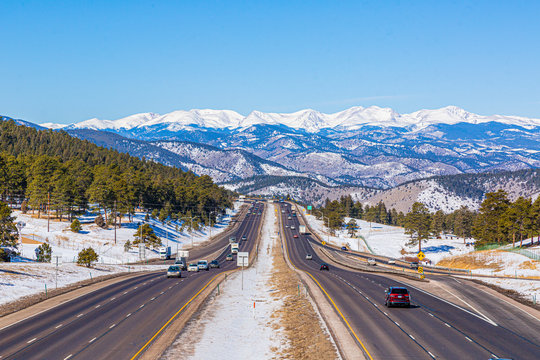Colorado’s breathtaking mountain ranges and outdoor adventures are a major draw for weekend warriors looking to escape the city. From hiking trails in Boulder to skiing in Breckenridge, the region offers something for everyone. But as idyllic as these adventures may seem, accidents in the mountains near Denver are not uncommon—and they can quickly turn a relaxing weekend into a stressful, life-altering experience.
Whether it’s a fall while hiking, a skiing collision, or a car accident on a winding mountain road, knowing what to do after an injury can make all the difference. Here’s what you should know if you or a loved one is injured during a mountain getaway.
1. Prioritize Safety and Seek Medical Attention Immediately
The first step after any accident is to ensure everyone’s immediate safety. If you’re in a remote area, call 911 and try to stay calm. Park rangers or search-and-rescue teams may be dispatched depending on your location and the severity of the situation. Even if injuries seem minor, seek medical care as soon as possible—many injuries can worsen over time if not properly treated.
Also, be mindful of symptoms like dizziness, confusion, or extreme fatigue, which may signal more serious internal injuries or even altitude sickness.
2. Document the Scene (If You’re Able)
If you’re physically able and it’s safe to do so, document the accident scene. Take photos of your surroundings, any hazards that contributed to the injury, and visible injuries. If there were any witnesses—fellow hikers, skiers, or passersby—try to get their contact information. Their account may be useful later if legal or insurance issues arise.
This step is especially important if your injury was due to negligence—like poorly maintained trails, faulty equipment, or reckless behavior by another individual.
3. File a Report
If the accident occurred in a national park, ski resort, or on public land, it’s important to file an official report with the appropriate authorities. This could be with park services, ski patrol, or local law enforcement. A written report helps establish a timeline and a formal record of the incident, which could be important in insurance claims or legal matters.
4. Understand Your Legal Rights
Not all accidents are simply “bad luck.” If your injury was caused by unsafe conditions, negligence, or the actions of another person, you may be entitled to compensation for medical bills, lost wages, or pain and suffering.
A personal injury lawyer in Denver can help you navigate the complexities of local and state laws, especially when it comes to mountain-related accidents that occur on public or private land. An experienced attorney will evaluate your case, determine liability, and guide you through the claims process.
It’s crucial to act quickly. Colorado law has strict statutes of limitations for filing personal injury claims—often just two years. The sooner you seek legal advice, the better your chances of building a strong case.
5. Plan for Future Safety
After the dust settles, take steps to avoid future incidents. Consider investing in proper gear, checking weather and trail conditions before you leave, and always letting someone know your travel plans. These precautions can go a long way toward preventing injuries during your next trip to the mountains.
Final Thoughts
Mountain getaways near Denver offer peace, adventure, and unforgettable experiences—but they’re not without risks. If you find yourself injured, staying calm, getting medical attention, and understanding your legal rights are key steps in protecting your health and your future.
For those seeking professional guidance after a mountain accident, consulting a knowledgeable personal injury lawyer in Denver can help you recover both physically and financially—so you can get back to enjoying Colorado’s great outdoors with confidence.

































